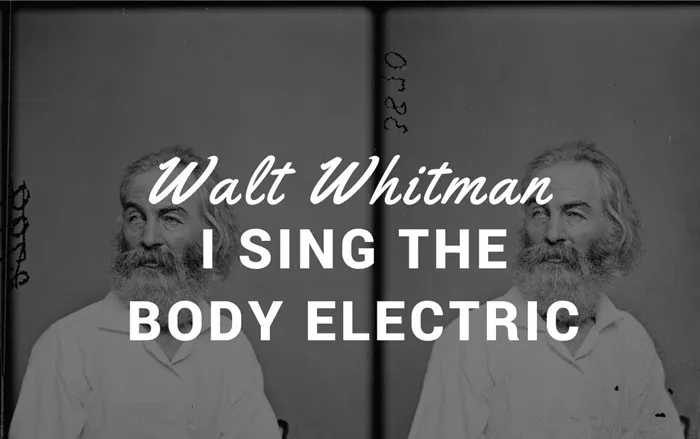Welcome to Poem of the Day – I Sing the Body Electric by Walt Whitman.
Walt Whitman, one of America’s greatest poets, is known for his groundbreaking works that explore the human experience and the connection between body, mind, and soul. One of his most famous poems, “I Sing the Body Electric,” is a celebration of the human body in all its beauty and strength. In this poem, Whitman emphasizes the connection between physicality and spirituality, creating a powerful image of the body as a vessel for the soul.
I Sing the Body Electric Explanation
Understanding the Title
The title, “I Sing the Body Electric,” suggests a celebration of the human body, but the word “electric” adds a layer of vitality, energy, and life. Whitman uses “electric” to convey the intense energy that courses through the body, linking it to the life force that powers the soul. This title highlights the idea that the body is not just a physical entity, but something vibrant and alive, full of energy that connects the individual to the world and to other people.
Celebrating the Body
In the poem, Whitman shifts away from the traditional view of the body as something to be ashamed of or feared. Instead, he praises the body as a source of strength, beauty, and power. He describes various parts of the body with admiration and respect, calling attention to the hands, legs, and even the internal organs. Whitman’s approach is holistic—he does not focus on one part of the body, but rather sees the body as a whole, interconnected and integral to the person.
Whitman writes about the body with an appreciation for its function and purpose. For example, he writes, “The body is not the soul, but the body is the body of the soul.” This line suggests that the body and soul are intertwined, each one incomplete without the other. It is the physical body that allows the soul to experience the world and express itself.
Spirituality and the Body
While Whitman celebrates the body, he also emphasizes the spiritual connection between body and soul. In his view, the body is not just a material object but a spiritual entity in its own right. The body’s actions, its movement, and its interactions with the world become a reflection of the soul’s energy and consciousness. Whitman challenges the notion that spirituality is confined to the mind or soul alone; instead, he argues that the body is equally spiritual, full of energy and life that contributes to one’s identity.
For Whitman, the body is an expression of divine energy, and it deserves reverence and respect. This view stands in contrast to traditional religious views that often saw the body as sinful or corrupt. In Whitman’s vision, the body is not something to be ashamed of but rather something to be celebrated for its role in both the earthly and the spiritual realms.
Equality and the Body
Another important theme in “I Sing the Body Electric” is the idea of equality. Whitman does not just celebrate the body of the privileged or the powerful, but all bodies, regardless of age, race, gender, or class. He writes, “I am of the same nature as the old, and the young; I am of the same nature as the strong, and the weak.” This line reflects Whitman’s belief that all human beings are connected through their shared bodily experience. He is not concerned with differences; rather, he focuses on the universal nature of the human body, which connects all people regardless of external factors.
By acknowledging the beauty and power of every body, Whitman challenges societal norms and calls for a more inclusive and accepting view of humanity. Every body is sacred, he suggests, and every individual is worthy of respect and reverence.
Conclusion
Walt Whitman’s “I Sing the Body Electric” is a revolutionary poem that celebrates the human body as a powerful and beautiful force. Through his use of vivid imagery and strong language, Whitman emphasizes the deep connection between the physical and spiritual aspects of life. He invites readers to view the body not as something separate from the soul, but as its living, breathing counterpart.
The poem urges us to honor and cherish our bodies, as they are vessels of both life and spirit. Whitman’s vision of equality encourages us to see the body as a shared human experience, transcending boundaries of race, class, and gender. Ultimately, “I Sing the Body Electric” is a celebration of the vitality, energy, and beauty that lies within every human body, inviting us to appreciate the power of our own physical existence.

